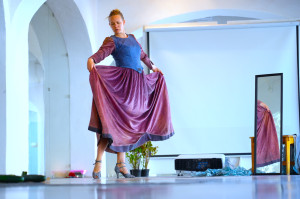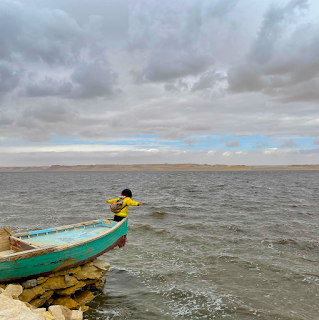- 18:00, December 5, Chalmers University of Technology, Gothenburg
Norrköping Air is proud to present an event that we co-organise with Chalmers Tekniska Högskola.
Since 2018 a group of artists and researchers from half a dozen European
countries have met, discussed, cooked, eaten and made interdisciplinary
art events about the microbes that humans live in symbiosis with.
Together the members of the group share a deep interest in how
humankind’s growing understanding about the microbes in the human body
influence humankind’s understanding of itself and our place in the
world. Their collective experiences form the basis for a new publication
that shed light on how microbes influence our health and our
personality. It is also an exploration of what happens when different
forms of knowledge come together and investigate a subject from
different angles and new perspectives. It was created to inspire new
thinking, new eating habits, and new perspectives on art and science.
The contributors offer inspiration for our daily lives by reflecting on
what happens when we see ourselves not as individuals, but rather
living, walking ecosystems.
Each human being lives with 1,5kg of microbes. They live in and on
our body and because they are so tiny they outnumber the amount of cells
that make up our bodies. The increasing knowledge about our
interactions with microbes is shifting our perception of who we are and
how we understand the world. This also raises questions about how humans
should act in the light of these unfolding discoveries about the
importance of the more-than-human world. The new knowledge also offers
opportunities for new technologies and at the same time forces humanity
to make complex ethical decisions. Research about microbes is therefore
not only a question for microbial scientists. It is important for
everyone on the planet, human and non-human alike. Today’s research and
technological advances are not only changing science, they also affect
the environment as well as influence the humanities and the arts. .
You are invited to the release of the book where you can meet some of
the writers who have participated in the process. We meet December 5 at
18:00 at Chalmers, Hörsalsvägen 7, in Gothenburg. When you enter you
will have Café Bulten to your right. On your left you will find a large
space and in it the entrance to the room “Delta” where the event takes
place. There will a performance and discussions with the editor and
contributors to the book.
We also invite you for some pizza and some drinks
afterwards.
Welcome!
////////////////////////////////////////////////////////////////////////////////////
CONTRIBUTORS:
⁃ MaiBritt Giacobini
⁃ Elias Arnér
⁃ Carima Neusser
⁃ Per Huttner
⁃ Freddie Ross
⁃ Kurt Johannessen
⁃ Emil Krog
⁃ Giada Lo Re
Governing Bodies is published by Vision Forum and Curatorial Mutiny.
The project and publication is supported by Nordic Culture Fund, Nordic
Culture Point and Längmanska kulturfonden.
Editor: Freddie Ross, with the assistance of Carola Uehlken and Per Hüttner.
Graphic Design: Erik Månsson
Copy editing: Tom Ridgway







